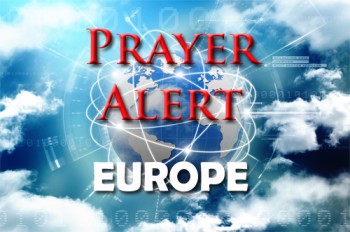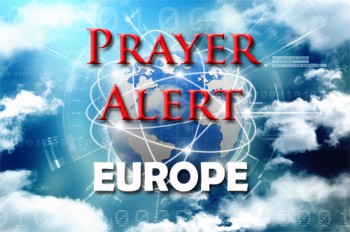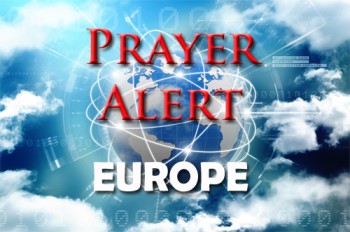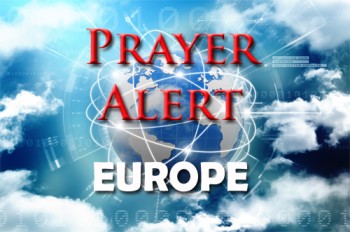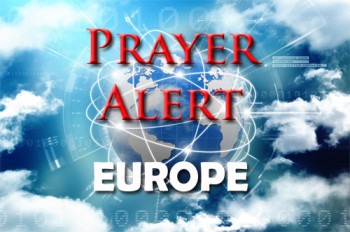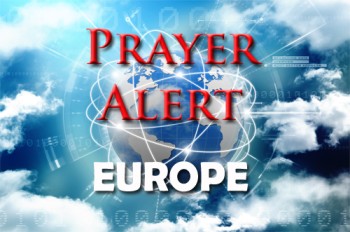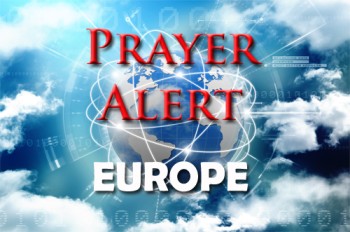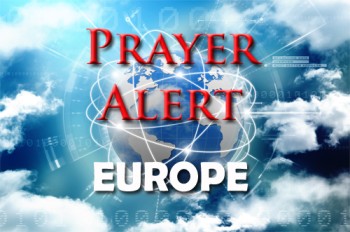Displaying items by tag: Europe
Russia and Belarus conduct military exercises as NATO feels the heat
Watched by US military officers and delegates from Turkey and Hungary, Russia and Belarus have launched large-scale military exercises across their territories and nearby seas, showcasing advanced weaponry and tactical nuclear capabilities near NATO’s eastern flank. The drills, involving roughly 6,800 troops as well as fighter jets and missiles, practised modern combat tactics like drone-assisted infantry assaults. Relations between Washington and Minsk seem to be improving; Belarus has recently released 52 political prisoners, prompting the Trump administration to ease some sanctions. Meanwhile, NATO allies remain uneasy after Russian drones repeatedly violated Polish and Romanian airspace. European leaders worry the exercises highlight Russia’s growing nuclear reach and evolving battlefield strategies, while Moscow insists it is open to dialogue but blames Western nations for obstructing progress toward resolving regional tensions.
France: Macron’s options after prime minister ousted
France faces a huge political crisis after lawmakers voted to oust prime minister François Bayrou’s minority government over his controversial austerity measures. His plan to cut €43.8 billion from the budget, including the elimination of public holidays, proved too bitter for lawmakers to swallow, leading to his removal by a wide margin. Emmanuel Macron must now name a fifth prime minister in less than two years, but his options are fraught. Any new premier will confront the same fractured parliament, where ideological divides between socialists and conservatives leave little space for compromise. A snap election would most likely lead to another hung parliament, while a technical caretaker government risks political paralysis. Though Macron’s resignation as president is highly improbable, his authority appears diminished. Financial markets are watching nervously as doubts grow over France’s ability to curb its soaring debt and deficits. Latest update: a new prime minister has been sworn in, but a grassroots group ‘Let’s block everything’ organised widespread protests, some violent, on 10 September. See
Poland: reactions to Russia’s drone attacks
Russia’s unprecedented drone strikes on Poland on 9 September are framed as both a test and a warning to Europe and NATO. Moscow, adept at ‘salami-slicing’ escalation, is probing allied resolve with incremental provocations - from bombings in Kyiv to GPS jamming: each crossing a new line while eliciting mostly rhetoric. Similar tactics enabled the 2014 seizure of Crimea, and hitting Polish territory is a larger slice meant to measure the alliance’s willingness to honour Article 5. A direct military response is deemed unlikely, yet inaction risks projecting weakness and inviting the next escalation. Sanctions talk will grow, but prior rounds neither deterred invasion nor reversed it; energy sanctions that might bite remain politically constrained. The strikes also serve as a warning against deeper Western involvement in Ukraine: Russia’s deniable, ambiguous tactics could complicate any future allied deployment after a ceasefire. The core question: can NATO deter without stumbling into a wider war?
Bulgaria: von der Leyen’s plane subjected to electronic jamming
On 1 September, In what authorities suspect was Russian interference, Ursula von der Leyen’s plane was subjected to GPS jamming while landing in Bulgaria,. The flight, which landed safely using paper maps, highlighted the persistent threat of disrupting aviation traffic electronically. Russia has long been accused of such tactics, particularly in the Baltic and Scandinavian regions, though the Kremlin has denied involvement. The incident occurred during von der Leyen’s tour of eastern EU states, aimed at reinforcing solidarity with Ukraine amid ongoing Russian aggression. She said that the EU must keep up their sense of urgency, adding: ‘Putin has not changed, and he will not change. He can only be kept in check through strong deterrence.’ The event also served as a reminder of the risks faced by European leaders when showing visible support for Ukraine’s sovereignty and freedom.
Ukraine: Estonia, Lithuania, Latvia all willing to contribute troops for security guarantees
Estonia’s president, Alar Karis, has said it is prepared to contribute troops to an international reassurance force that the ‘Coalition of the Willing’ plans to send to Ukraine as a post-ceasefire security guarantee. He said Estonia is not overly concerned that this would weaken NATO’s eastern flank, though discussions with alliance leaders continue. Lithuania and Latvia are also willing to participate, but Poland has declined, citing the need to protect its own borders. The reassurance force would be deployed only in non-contact areas within Ukraine. NATO secretary-general Mark Rutte noted that while NATO itself will not formally participate, the alliance is quietly discussing how to ensure resources are not overstretched. About 80,000 US troops are currently in Europe, but there could be a reduction in numbers as Washington’s foreign policy pivots towards the Indo-Pacific. The 'Coalition of the Willing' will meet again on 4 September; the security guarantees it will aim to provide for Ukraine following a truce are almost ready, but confirmation of US support is now needed.
Lisbon: funicular railway crash ‘due partly to overtourism’
A tragic derailment of Lisbon’s historic Glória funicular railway has left 16 dead and 21 injured, after a carriage broke free and crashed into a hotel. The popular railway, dating back to 1885 and carrying around three million passengers annually, has been at the center of debate about overtourism. Residents say it has shifted from serving locals to functioning primarily as a tourist attraction, placing heavy strain on the system. Investigators believe a snapped haulage cable caused the accident, though union leaders had previously raised concerns about braking difficulties. Maintenance protocols were reportedly in place, but questions are mounting as the outsourced maintenance contract had expired just days before the crash. The incident prompted national mourning, suspension of other funiculars in the city, and renewed scrutiny over balancing heritage preservation, safety, and the pressures of mass tourism in Portugal’s capital.
Big Tech: Trump increases pressure on Europe over digital regulations
Donald Trump is intensifying pressure on the EU and other nations over digital regulations and taxes which he argues unfairly target American technology companies. Threatening new tariffs and restrictions on exports, he has warned that countries with policies he deems discriminatory will face consequences unless they roll back their measures. At the heart of the dispute are the EU’s Digital Services Act and Digital Markets Act, designed to curb monopolistic practices and require platforms to tackle harmful content, but viewed by Washington as an attack on US firms like Google and Meta. The standoff raises tensions at a delicate stage in transatlantic trade talks, with many issues unresolved despite a preliminary agreement. Analysts caution that Europe is unlikely to reverse rules which represent long-sought goals of digital sovereignty, while Trump’s negotiating tactic is seen as ‘keep on pushing, keep on demanding: nothing is ever fully agreed upon.’
Ukraine: Trump stirs more controversy, hopes for trilateral meeting
Donald Trump has stirred controversy by suggesting Ukraine is to blame for confronting a nation ‘ten times’ its size, despite Russia being the aggressor in the ongoing war. He downplayed Russia’s responsibility for the invasion, instead criticising former presidents Joe Biden and Barack Obama for their handling of the conflict. He argued that Biden ‘started’ the war and accused Obama of ‘giving away’ Crimea in 2014. He also asserted that Ukraine had only been able to resist due to American weapons and aid. His comments followed the White House meeting on 18 August with Volodymyr Zelensky, European leaders, and NATO officials, at which he pledged US support for Ukraine’s future security. Trump also touted his ‘good relationship’ with Vladimir Putin, saying that he had spoken to him about arranging a trilateral meeting with Zelensky. While he presented this as an early step toward peace, the question now is how Putin will respond.
Europe: increasing number of mosquito-borne diseases
The European Centre for Disease Prevention and Control (ECDC) has warned that Europe is entering a ‘new normal’ of longer and more intense mosquito-borne disease transmission. Rising temperatures, extended summers, milder winters, and shifting rainfall patterns have created conditions for mosquitoes to spread viruses more effectively. The chikungunya-carrying mosquito is now established in 16 European countries and 369 regions, compared to just 114 a decade ago. This year, Europe has recorded 27 chikungunya outbreaks, the highest on record, including a case in Alsace, France - an unusual event for such a northern latitude. Meanwhile, West Nile virus has infected 335 people across eight countries, causing 19 deaths, with Italy hardest hit. Officials caution that more Europeans will face risk in the coming years. The ECDC has urged stronger public health coordination and personal prevention measures, including insect repellent, protective clothing, window screens, and bed nets to reduce exposure.
Trump warns of ‘severe consequences’ if Putin refuses to agree to a ceasefire
Donald Trump has warned of ‘very severe consequences’ if Vladimir Putin refuses to agree to a ceasefire in Ukraine during their meeting in Alaska on 15 August. While not detailing the measures, Trump has previously suggested economic sanctions and hinted at a follow-up meeting that could include Volodymyr Zelensky. Concerns persist among European leaders and Kyiv that any peace proposal might involve Ukraine surrendering territory - particularly the Donbas region - in exchange for halting further Russian advances. In a high-level virtual call hosted by Germany, Zelensky, Trump, and key European leaders reaffirmed their commitment to Ukrainian sovereignty and continued pressure on Moscow. Zelensky dismissed Putin’s threats as bluffs, insisting that sanctions and united international resolve remain crucial. The Alaska summit is seen as both a diplomatic opportunity and a high-stakes gamble, with Ukraine’s territorial integrity and the broader stability of Europe hanging in the balance. Meanwhile, on 12 August Russian troops tried to make a big advance, possibly to put extra pressure on Kyiv to cede territory: see
